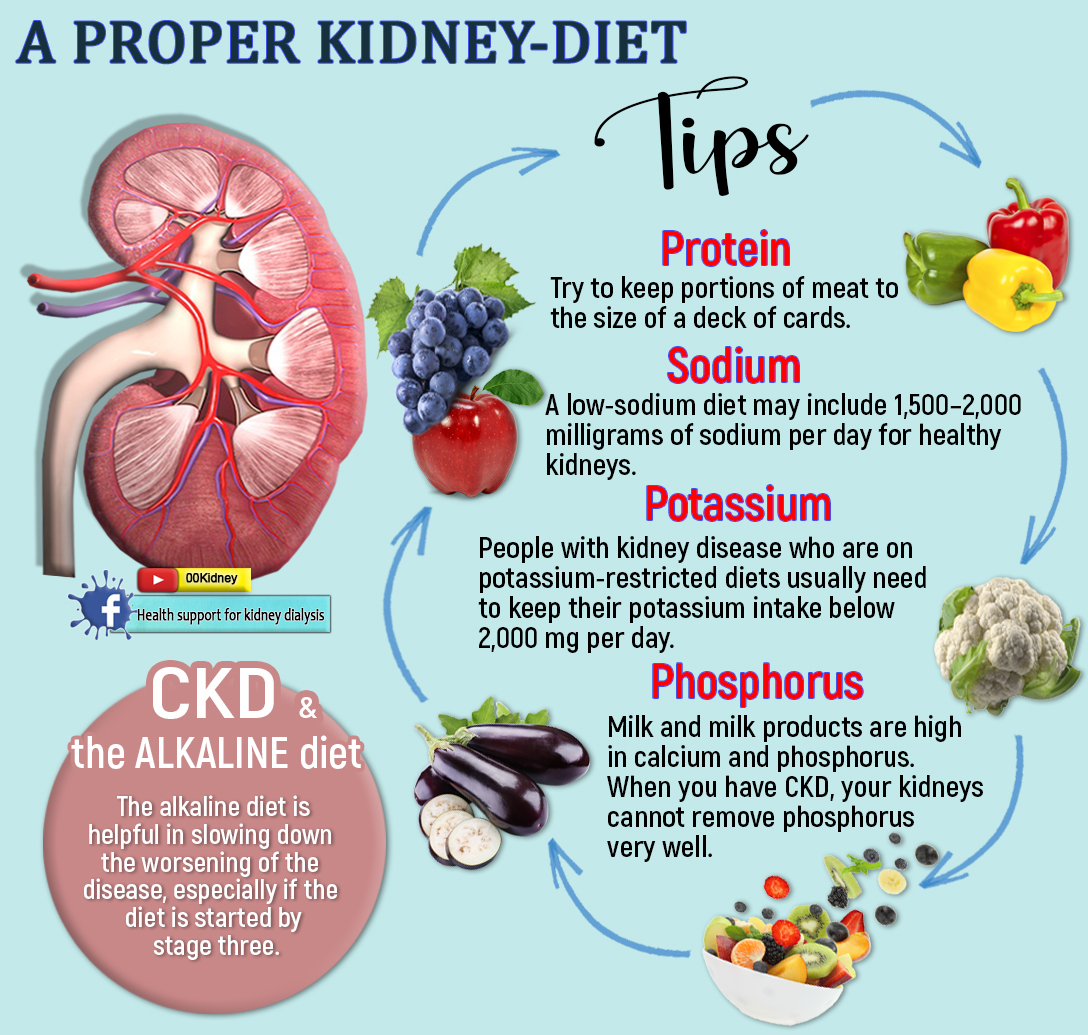Diet For CKD Stage 5: A Comprehensive Guide To Managing Kidney Health
Chronic Kidney Disease (CKD) Stage 5 is a critical condition that requires careful management, particularly through diet. Individuals facing this stage of kidney disease must adopt an appropriate diet to slow the progression of the disease and maintain their overall health. In this article, we will delve deeply into the essential dietary guidelines for CKD Stage 5, the importance of nutrient management, and practical tips to implement a kidney-friendly diet.
The dietary choices one makes can significantly impact their kidney health and overall well-being. This article aims to provide valuable insights into the best practices for diet management in CKD Stage 5, including specific foods to eat and avoid, and the role of hydration. We will also explore the importance of consulting with healthcare professionals to tailor a personalized diet plan that meets individual needs.
Whether you are newly diagnosed or have been managing CKD for some time, understanding the implications of your diet is crucial. Together, we will navigate the complexities of nutrition for CKD Stage 5, arming you with the knowledge necessary to make informed decisions about your health.
Table of Contents
- Understanding CKD and Its Stages
- The Importance of Diet in CKD Stage 5
- Nutritional Requirements for CKD Stage 5
- Foods to Include in Your Diet
- Foods to Avoid with CKD Stage 5
- Hydration Tips for Kidney Health
- Consulting Healthcare Professionals
- Conclusion
Understanding CKD and Its Stages
Chronic Kidney Disease (CKD) is a long-term condition that affects kidney function. It is typically categorized into five stages, with Stage 5 being the most severe, often referred to as End-Stage Renal Disease (ESRD). At this stage, the kidneys are functioning at less than 15% of their normal capacity, necessitating dialysis or kidney transplantation.
CKD progresses through the following stages:
- Stage 1: Mild kidney damage with normal or increased GFR (glomerular filtration rate) ≥ 90 mL/min.
- Stage 2: Mild kidney damage with GFR 60-89 mL/min.
- Stage 3: Moderate kidney damage with GFR 30-59 mL/min.
- Stage 4: Severe kidney damage with GFR 15-29 mL/min.
- Stage 5: Kidney failure with GFR < 15 mL/min.
The Importance of Diet in CKD Stage 5
Diet plays a crucial role in managing CKD, particularly in Stage 5. Proper nutrition can help control symptoms, reduce the risk of complications, and improve the quality of life. A well-planned diet can also aid in managing other related conditions, such as diabetes and hypertension, which are common in CKD patients.
The key dietary considerations for individuals with CKD Stage 5 include:
- Reducing the intake of protein to lessen kidney workload.
- Managing sodium intake to control blood pressure and minimize fluid retention.
- Limiting potassium and phosphorus to prevent complications.
Nutritional Requirements for CKD Stage 5
When managing CKD Stage 5, it is essential to focus on specific nutritional requirements to support kidney function. Here are the primary nutrients to consider:
Protein
Protein is vital for maintaining muscle mass and overall health, but excessive protein can put additional strain on the kidneys. It is recommended to consult a dietitian to determine the appropriate amount of protein intake based on individual needs.
Sodium
Sodium can contribute to high blood pressure and fluid retention, which are detrimental for CKD patients. A low-sodium diet is generally advised, often limiting sodium intake to less than 2,000 mg per day.
Potassium
High potassium levels can lead to serious heart problems. Foods high in potassium should be limited, and regular monitoring of potassium levels is essential.
Phosphorus
Excess phosphorus can cause bone disease and cardiovascular issues. It is crucial to limit phosphorus intake, often requiring a reduction in dairy products, nuts, and certain meats.
Foods to Include in Your Diet
Incorporating the right foods into your diet can help maintain kidney health. Here’s a list of recommended foods for individuals with CKD Stage 5:
- Fruits: Apples, berries, cherries, and grapes.
- Vegetables: Cauliflower, bell peppers, and cabbage.
- Grains: White rice, pasta, and bread (preferably low-sodium).
- Healthy fats: Olive oil and avocado.
- Low-protein alternatives: Specialized low-protein products if recommended.
Foods to Avoid with CKD Stage 5
To effectively manage CKD Stage 5, certain foods should be avoided to prevent complications:
- High-potassium foods: Bananas, oranges, potatoes, and spinach.
- High-phosphorus foods: Dairy products, nuts, and cola beverages.
- Sodium-rich foods: Processed foods, canned soups, and fast food.
- High-protein foods: Red meat, fish, and poultry (as per individual recommendations).
Hydration Tips for Kidney Health
Staying hydrated is crucial for kidney health; however, fluid intake may need to be monitored in CKD Stage 5. Here are some hydration tips:
- Follow your healthcare provider's recommendations on fluid intake.
- Opt for water or low-sodium broths over sugary or caffeinated drinks.
- Monitor your weight and swelling to gauge fluid retention.
Consulting Healthcare Professionals
Working with healthcare professionals, including nephrologists and registered dietitians, is essential for developing a personalized diet plan. They can provide guidance tailored to individual health needs, ensuring that nutritional requirements and dietary restrictions are effectively managed.
Conclusion
In conclusion, managing CKD Stage 5 through diet is a critical aspect of health maintenance. By understanding the dietary needs and restrictions, individuals can make informed choices that support their kidney function and overall well-being. It is vital to consult healthcare professionals for personalized dietary guidance.
We encourage you to take charge of your health, share your thoughts in the comments below, and explore other articles on our site for more information on managing CKD and related health topics.
Thank you for reading, and we hope to see you back here soon for more valuable insights on health and wellness!
Article Recommendations
- Propain Wall Heater
- City Of Tulsa
- Kim Go Ni
- Michael C Hall
- Yvonne Elliman
- Does Ava Max Have A Husband
- Club Random
- Holiday Inn Express Pcb
- Nintendo Store Nyc
- Michael Kitchen


